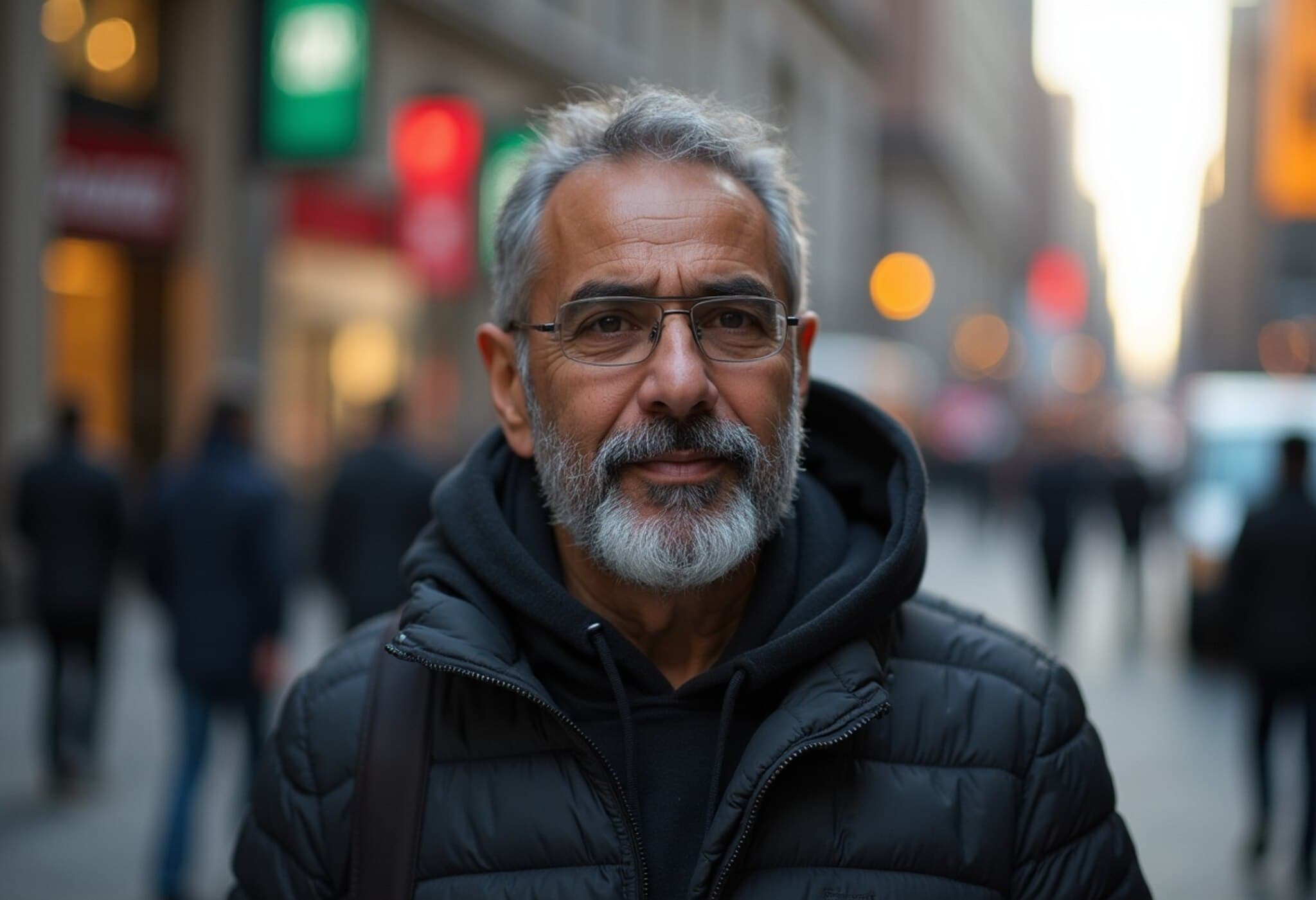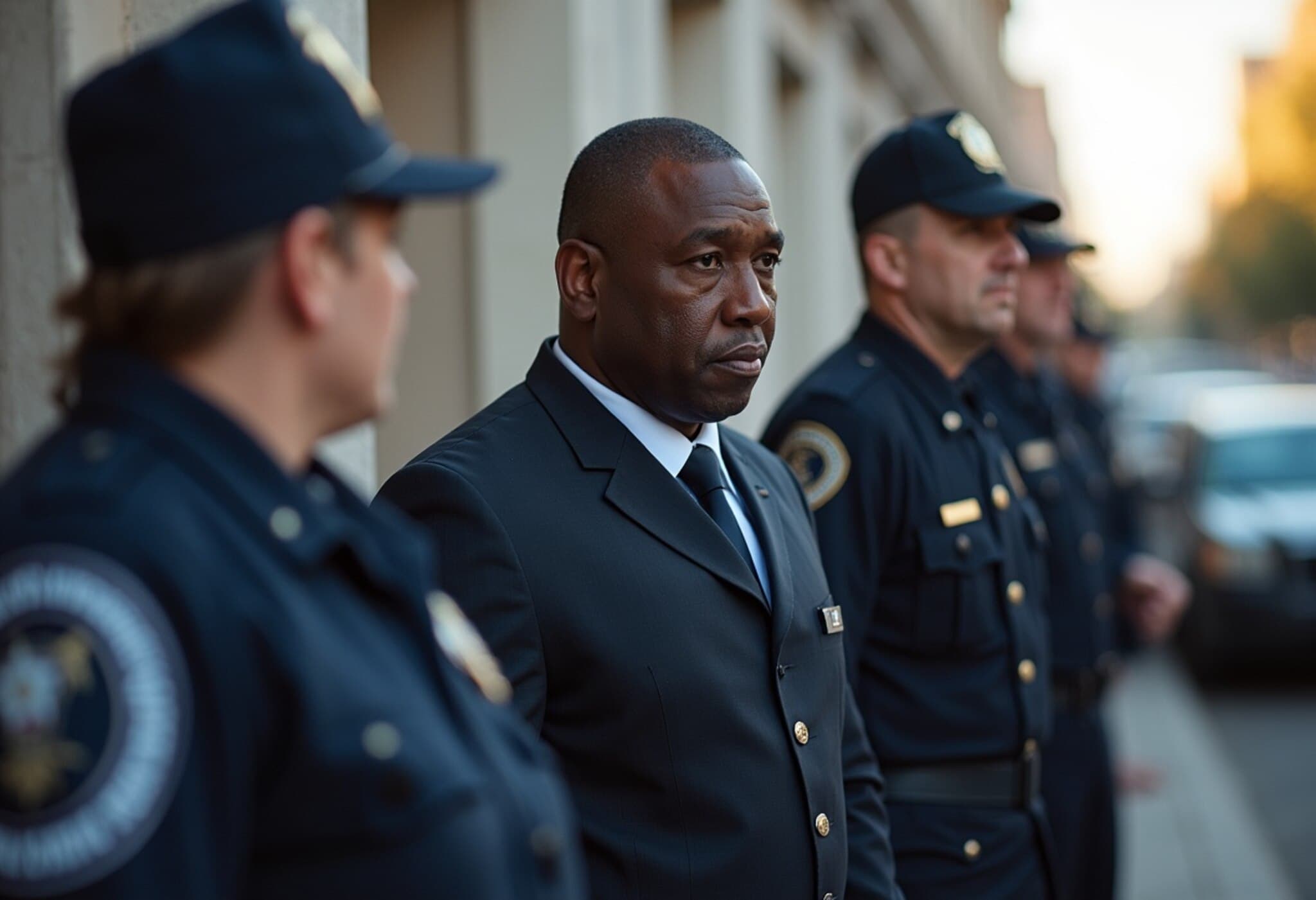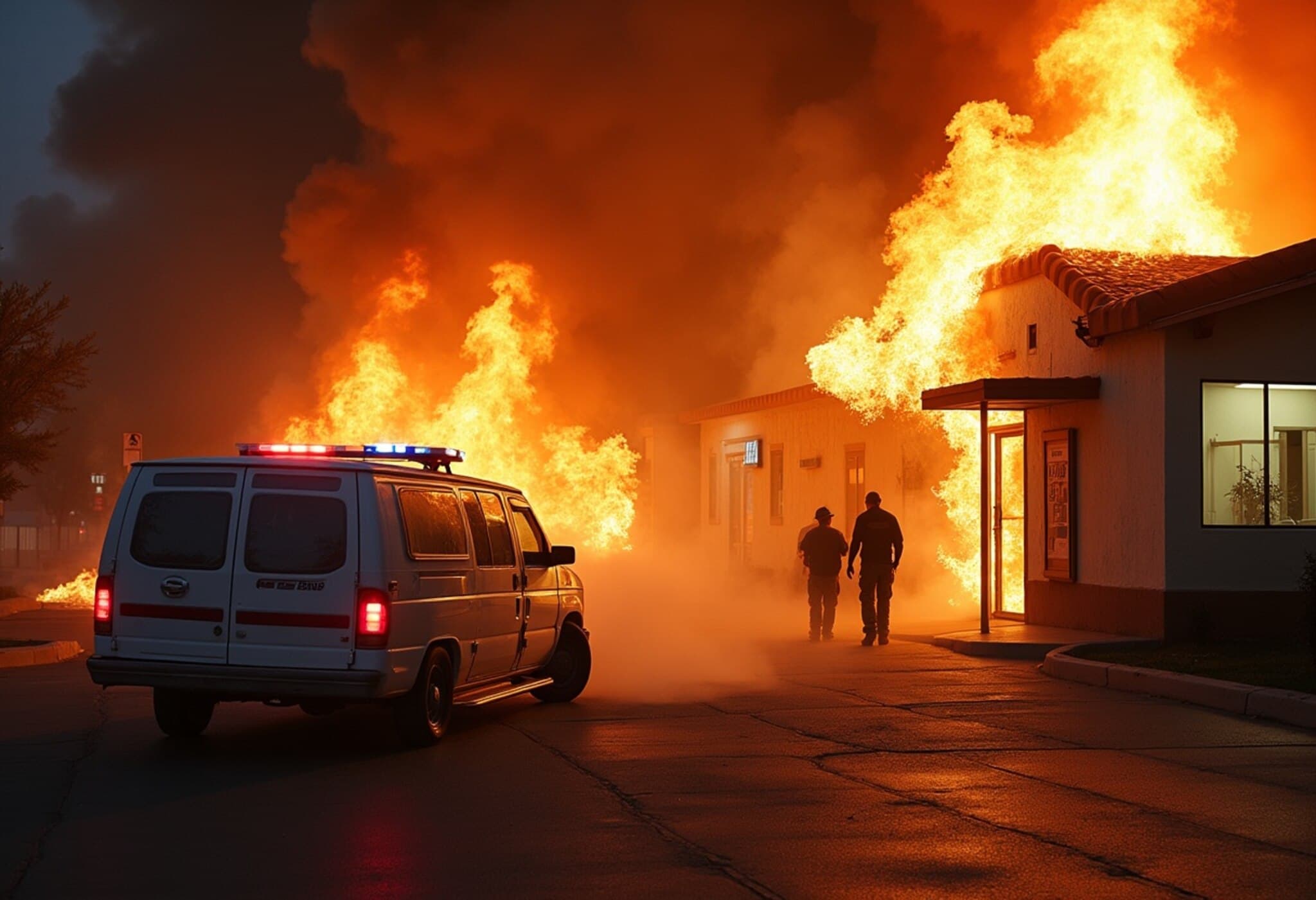Tragedy Unfolds During Federal Immigration Raids at California Cannabis Farms
In a harrowing development amid intensified federal immigration enforcement, a farmworker at a Southern California cannabis cultivation site tragically died after falling approximately 30 feet during a chaotic federal raid. The incident occurred at Glass House Farms near Los Angeles, igniting fresh debates over immigration enforcement's impact on vulnerable communities and agriculture workers.
Violent Raids Trigger Outcry from Labor and Community Groups
The United Farm Workers (UFW) union condemned the federal operation, calling it "violent and cruel," emphasizing how such actions not only instill terror within immigrant communities but also jeopardize the American food supply chain and tear families apart. UFW President Teresa Romero remarked, "These violent and cruel federal actions terrorize American communities, disrupt the American food supply chain, threaten lives and separate families."
The federal agencies involved have yet to issue comments addressing the fatality, but images and reports from the scene reveal a tense standoff, marked by aggressive crowd control tactics.
Heavy-Handed Enforcement and Civil Liberties Concerns
Footage shows federal officers deploying tear gas and less-lethal weapons against protesters outside the farms, which drew hundreds in a display of resistance. Among those affected was George Retes, a U.S. Army veteran and security guard at the facility, who was pepper-sprayed and arrested despite fully cooperating with authorities. His wife described the ordeal, highlighting the chaotic and indiscriminate nature of the raid.
Inside, workers, some holding valid work visas and long-term U.S. residency, were detained for hours. Edgar Rodriguez, a manager and U.S. citizen at another Glass House farm in Carpinteria, recounted his own harrowing experience of being handcuffed, physically restrained, and denied identification by officers arriving in unmarked vehicles with an armored presence.
Workplace Rights and Immigrant Employee Protections Under Scrutiny
Rodriguez witnessed at least ten arrests among staff aged 40 to 60, many legally authorized to work in the U.S. He stressed the fear and confusion among employees, many asserting their lawful status. This paints a complicated picture of the raid's targeting and raises questions about the proportionality and legality of such enforcement operations.
Reports of Minors and Child Labor Claims Ignite Further Debate
Controversy deepened as U.S. Customs and Border Protection released images of juveniles detained during the operation, including some reportedly as young as 14. Glass House Farms staunchly denied employing minors, with management emphasizing age restrictions in hiring policies. Meanwhile, the UFW condemned detaining children as a misdirected policy response, calling for urgent legal representation.
Political and Social Ramifications in California’s Immigrant Communities
This raid follows months of tension between federal authorities and immigrant advocacy groups, with protests occasionally disrupting daily life in Los Angeles. Recognizing the community’s anxiety, Los Angeles Mayor Karen Bass implemented a directive requiring city departments to prepare for interactions with immigration agents, aiming to empower residents and city employees with knowledge about their rights and to ensure safe access to services.
Legal Challenges and Future Outlook
The raids coincide with pending litigation from the ACLU and immigrant groups seeking judicial intervention against enforcement practices they argue have terrorized communities and forced immigrants into hiding. A federal judge’s ruling on this lawsuit is anticipated, potentially shaping the future of immigration enforcement strategies.
Expert Insights: What This Means for Agriculture and Immigration Policy
These developments underscore the fraught intersection between immigration law enforcement and the American agricultural economy, particularly in labor-intensive sectors like cannabis cultivation. Experts warn that aggressive raids risk destabilizing supply chains critical to emerging industries and communities heavily reliant on immigrant labor. Moreover, the highly militarized approach may further alienate immigrant workers and erode trust in institutions, making cooperation on public health and safety more difficult.
From a legal standpoint, cases like Edgar Rodriguez’s highlight concerns around law enforcement transparency, due process rights, and the potential for civil rights violations during federal operations conducted without clear identification or warrants presented upfront.
Summary
- A farmworker died following a 30-foot fall during a federal immigration raid at Glass House Farms in Southern California.
- Protests erupted, met with tear gas and less-lethal weapons; a U.S. Army veteran and security guard was pepper-sprayed and arrested.
- Multiple workers with valid documentation were detained, sparking fears over immigration enforcement tactics.
- Claims about detained minors sparked debate; Glass House Farms denies employing underage workers.
- Local leadership is responding with policies to protect immigrant rights amid rising enforcement tensions.
- Legal battles continue, with debates about the balance between law enforcement and community safety.
Editor’s Note
This tragic event at California’s cannabis farms shines a spotlight on the harsh realities faced by immigrant workers caught in the crossfire of federal immigration policy and enforcement. Beyond the immediate human toll, it raises urgent questions about how enforcement actions affect vital economic sectors, constitutional rights, and community trust. As lawmakers, advocates, and communities grapple with these complexities, ensuring fair, transparent, and humane approaches remains critical to upholding both justice and economic stability.



















